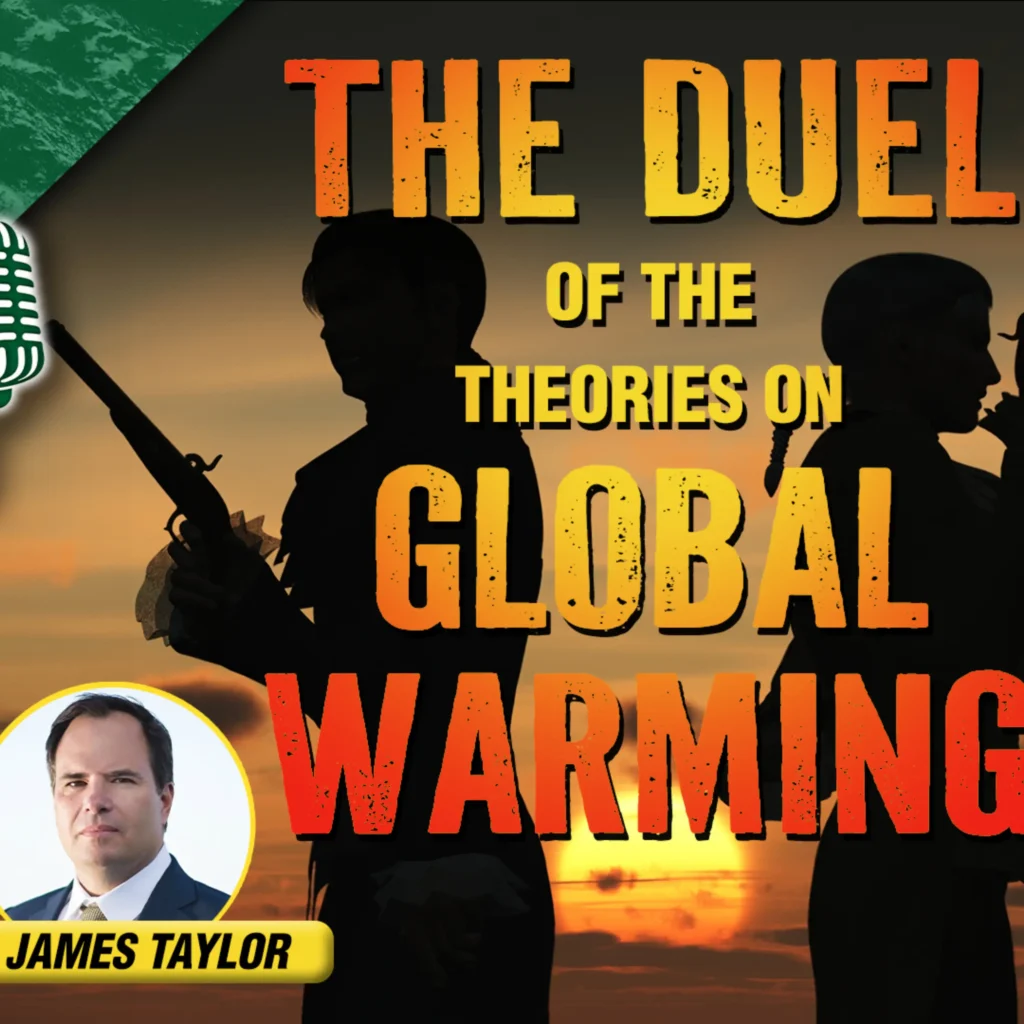Climate Change Weekly #215
Republicans in the United States House of Representatives and Senate are pushing back against state and federal attorneys general who believe the First Amendment is null and void if people exercise their freedoms of speech and association in order to debate the existence of catastrophic human-caused global warming or criticize proposals to reduce fossil fuel use.
Led by Chairman Rep. Lamar Smith (R-TX), Republican members of the House Committee on Science, Space, and Technology sent letters on May 19 to 17 state attorneys general and eight environmental activist organizations, requesting documents related to their “coordinated efforts to deprive companies, nonprofit organizations, scientists and scholars of their First Amendment rights and their ability to fund and conduct scientific research free from intimidation and threats of prosecution.”
The letter states, “On March 29, 2016, you and other state attorneys general – the self-proclaimed ‘Green 20’ – announced that you were cooperating on an unprecedented effort against those who have questioned the causes, magnitude, or best ways to address climate change. … [T]hese efforts to silence speech are based on political theater rather than legal or scientific arguments, and … they run counter to an attorney general’s duty to serve ‘as the guardian of the legal rights of the citizens’ and to ‘assert, protect, and defend the rights of the people.'”
The AGs of California, Massachusetts, New York, and the Virgin Islands are investigating ExxonMobil, while Claude Walker, the AG for the Virgin Islands, went so far as to subpoena 10 years of documents from the Competitive Enterprise Institute (CEI). CEI fought back, forcing Walker to withdraw his subpoena.
While the House has focused its efforts on the efforts by state AGs to stifle climate change debate, the Senate has turned its attention to U.S. Attorney General Loretta Lynch, who asked the FBI to determine whether the Justice Department could prosecute (and thus persecute) climate skeptics using the Racketeer Influenced and Corrupt Organizations Act (RICO). On May 26, just a week after the House fired its shot across the bows of the state AGs and their radical environmentalist collaborators, five members of the Senate sent a letter to Lynch, demanding “the Department of Justice immediately cease its ongoing use of law enforcement resources to stifle private debate on one of the most controversial public issues of our time – climate change.”
The letter continues, “As you well know, initiating criminal prosecution for a private entity’s opinions on climate change is a blatant violation of the First Amendment and an abuse of power that rises to the level of prosecutorial misconduct.”
The Senators have asked the department to end all investigations and inquiries into climate changes “deniers” within 14 days.
When one branch of the government forgets its obligation to uphold and defend the Constitution of the United States and attempts to bully private parties into silence over issues of scientific and political importance, it’s good to see members of another branch of government still take their oath of office seriously and will come to the defense of free speech – the cornerstone of both scientific progress and our democratic republic form of government.
— H. Sterling Burnett
SOURCES: Senate Letter; The Daily Caller; and House Letter
IN THIS ISSUE …
Lakes emit more greenhouse gases than expected … Spring not arriving earlier … 17th to 18th century warming was faster, greater than now … Reasons to doubt a climate change crisis is in the offing
LAKES EMIT MORE GREENHOUSE GASES THAN EXPECTED
A study in Environmental Research Letters finds greenhouse gas emissions from lakes and rivers are as much as 45 percent higher than previously thought, meaning inland waters may not be a good a carbon reservoir. Using a year-long series of continuous measurements of carbon dioxide emissions from Mississippi’s Ross Barnett Reservoir, the Washington State University team found nighttime carbon emissions were as much as 70 percent higher than during the day, with storms also creating emissions spikes. “That’s pretty huge,'” said Heping Liu, associate professor in the WSU Department of Civil and Environmental Engineering, lead author of the study. “Based on this study, the emissions from inland waterways are much larger than previously thought.”
The WSU researchers suggest the Mississippi reservoir is typical of inland waters, meaning waterways around the world likely produce greenhouse gas emissions greater than previously thought. Other researchers have found similar high nighttime emissions. If these results are correct, this is another mark against climate models that undercount natural emissions from inland waters, meaning political attempts to reduce overall atmospheric carbon dioxide levels would require even steeper cuts in human emissions to make up for the additional emissions from inland waters.
SOURCE: Science Daily
Contrary to claims made by climate alarmists, it seems global warming is not causing spring to arrive earlier on average in the mountains. Mark Albright, past Washington State climatologist, has plotted the “melt out” in Steven’s Pass in Washington state from 1981 through 2015. “Melt out” is the first day of the summer when less than two inches of snow water equivalent remains on the ground. While 2016’s melt-out date of May 21 was the eighth earliest in the past 36 years, the average melt-out date over the period was June 2.
Climate alarmists have argued increasing levels of carbon dioxide will result in warming, resulting in less build-up of mountain snowpack and an earlier spring melt out. But instead of finding a long-term trend toward earlier melt-out dates, Albright found melt-out dates are trending slightly later over the period, implying either cooling or greater snowpacks or both. The data show the average melt-out date in the 1980s was May 30; in the 1990s it was June 1; in the 2000s it was June 2; and from 2010 to 2016, the average melt-out date was June 4. The Steven’s Pass data are consistent with other independent measures of snow content in the Cascades.
SOURCE: Cliff Mass Weather Blog
17TH to 18TH CENTURY WARMING WAS FASTER, GREATER THAN NOW
Contrary to claims that twentieth century warming was greater and more rapid than in the past, even “unprecedented,” new research from England shows even greater, more rapid warming occurred from the late seventeenth century through the early eighteenth century.
The Central England Temperature (CET) data set, which reports data from 1659 until today, shows a warming of 0.084°C for the 90-year period from1660 to 1750. The Global Historical Climatology Network (GHCN) data set shows a warming of 0.086°C for a more-recent 90-year period, from 1925 to the present. The trends are nearly identical.
The warming recorded by CET for the 45-year span from 1692 to 1737 was 0.4°C per decade, nearly five times the average rate of warming over the entire 1660 to 1770 period. More to the point, the warming from 1692 to 1737 is more than twice as fast as warming in the late twentieth century, the period for which climate alarmists have attributed unprecedented global warming to humans, and the 1692 to 1737 warming lasted twice as long. Central England warmed by 2°C – 3°C if one measures from the coldest year to the warmest during the period – compared to less than 1°C of measured warming from the bottom of the 1976 La Niña to the top of the 1998 El Niño.
Data from other sources would be needed to establish how widespread the warming of 1692 to 1737 was, but at least regionally, it would seem the recent warming is neither unprecedented nor unusual.
SOURCE: No Tricks Zone
REASONS TO DOUBT A CLIMATE CRISIS IS IN THE OFFING
Author John Steele Gordon provides 10 reasons for believing climate change is not the existential threat claimed by President Barack Obama, Al Gore, and others. Among the reasons for doubting a climate catastrophe is in the offing:
- sound science produces predictions that come true, but predictions made by those who say humans are causing dangerous climate change have been wrong regularly and repeatedly. For instance, in 2005 Al Gore predicted the polar ice caps would be gone by 2015, but in fact the polar ice caps that year were above the average for the period since 1979. While computer climate models have predicted a steady increase in warming, warming stopped in 1998.
- sound science needs reliable, accurate data – yet climate data are routinely “adjusted” in ways that make it impossible to ensure their accuracy. If you can’t trust the data used by those predicting disaster and, Gordon asks, “If the computer models cannot accurately predict what is now the past, why should we rely on them to predict the future?”
- those shouting the loudest about impending human-caused climate disaster don’t act as if they believe what they are saying. Gordon notes, “When the UN held a climate conference in Bali in 2007, attendees flew in on so many private jets that many had to be parked at an airport on next-door Java. … As Glenn Reynolds of Instapundit says, ‘I’ll believe there’s a climate crisis when the people who tell me there’s a climate crisis start acting like there’s a climate crisis.'”
SOURCE: Commentary Magazine
The Climate Change Weekly Newsletter has been moved to HeartlandDailyNews.com. Please check there for future updates!





